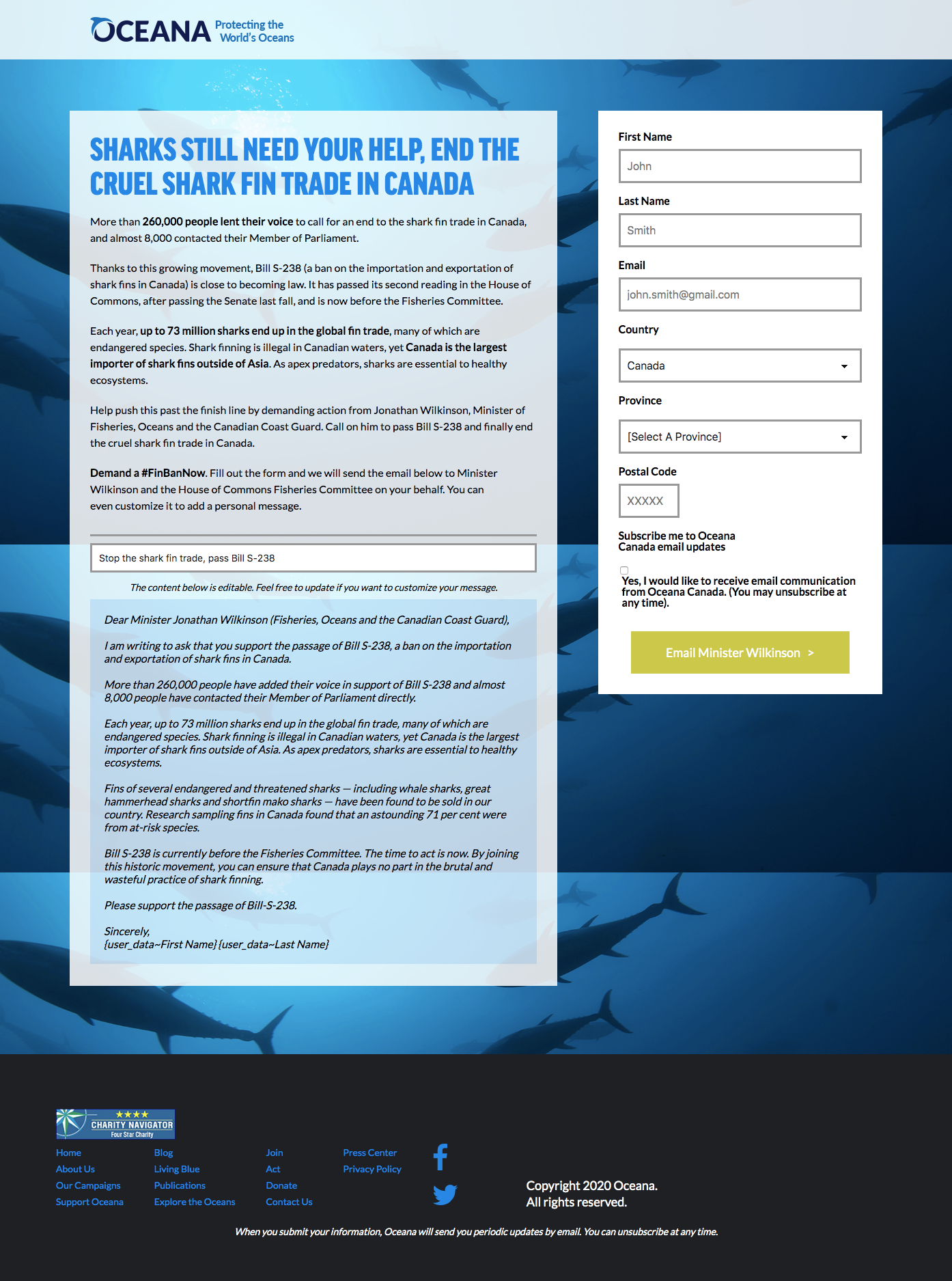The oceans are the life source for our planet, and within their depths live incredible animals, including more than 400 species of sharks. From the distinct hammerhead to the iconic great white and the lesser known mako, dogfish and basking, sharks are vital to our oceans. They are apex predators, regulating the abundance of other species and playing a critical role in maintaining the health of ocean ecosystems.
Sharks also are slow-growing, taking a long time to mature and give birth to young. This makes them vulnerable to threats, the most severe of which is shark finning, a brutal and wasteful practice that is devastating populations around the world.

Oceana Canada petition page
Fins from up to 73 million sharks end up in the fin trade every year. Canada was once the largest importer of shark fins outside of Asia until Oceana Canada, along with many allies and supporters, made importing and exporting fins illegal. This shift was made possible in part with a communications campaign that required sharing stories and building an emotional connection to shark conservation and empowering people to be part of the solution.
We developed digital and earned media content to raise awareness among Canadians about Canada’s role in the shark fin trade and built a connection to the importance of protecting sharks. We encouraged people across Canada to call on the government to implement the ban through a petition that garnered 313,000 signatures. Thousands of people directly emailed and called their members of Parliament, as well.
To engage the public, we created web content including blogs, deployed email campaigns, conducted earned media outreach and launched social media strategies that incorporated influencers. These tactics leveraged videos, photos and designed graphics to bring to life the story of shark finning and Canada’s role in this trade. We achieved success in June 2019 with a national ban on the import and export of shark fins as part of Canada’s amended Fisheries Act.
“Even if your own story does not perfectly fit within the mold of what you may think an award-winning communications campaign looks like, your approach and what you achieved could be thought-provoking and show the diversity of projects communicators tackle every day.”
The Gold Quill designation was an important post-campaign project, providing an opportunity to reflect on and learn from the experience. It also showed our small team that we are capable of award-winning campaigns that are leading examples in the field of communications. Although our campaigns often are small in budget and scope, their impact can be large. Being recognized by this prestigious award acknowledges that a small nonprofit focused on very niche conservation efforts can serve as inspiration to communicators working in different fields around the world.
For those looking to submit their own work, I encourage you to think broadly about your projects and its outcomes. Even if your own story does not perfectly fit within the mold of what you may think an award-winning communications campaign looks like, your approach and what you achieved could be thought-provoking and show the diversity of projects communicators tackle every day.
Watch the Shark Fin Trade Victory Video.
Read the full case study here.
Jennifer Whyte Jennifer Whyte is the online engagement and content manager for Oceana Canada.